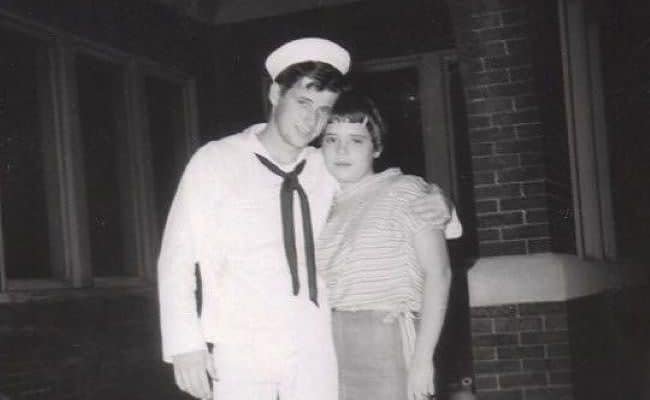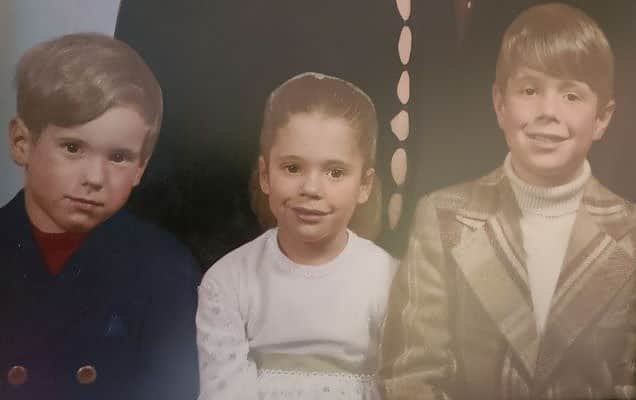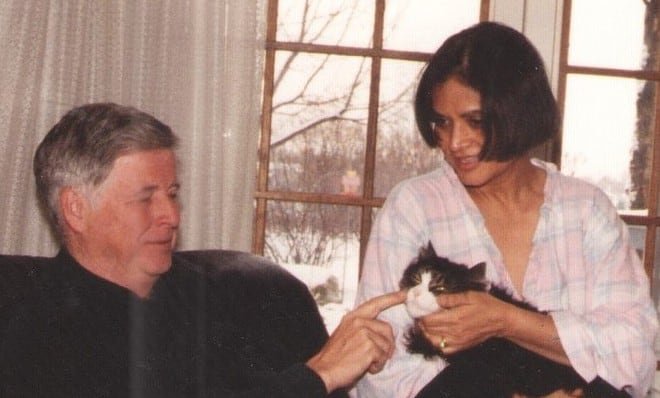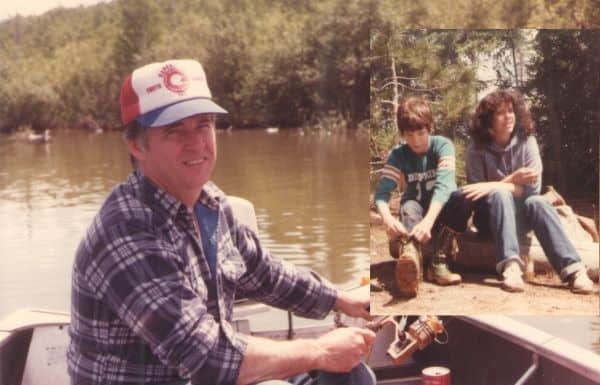Ma Millie-5
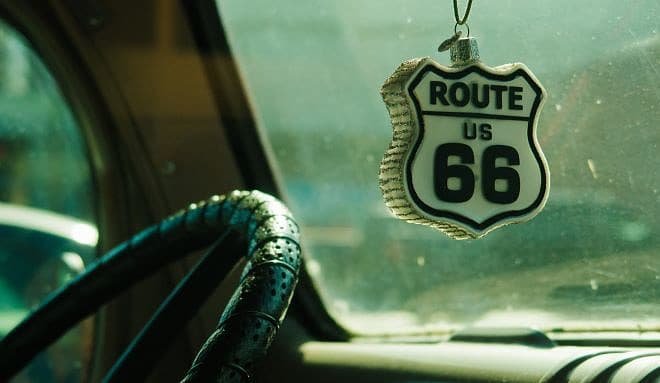
Mildred looks up from her reminiscing and her martini – it is almost all gone. It’s been a lingering and fascinating afternoon. We have lost all track of time. The sun is dipping behind the tobogganing hill, its rays slanting into the sunroom. Jason comes downstairs to remind us he is starving. We are all getting a little hungry. Too late to get a decent supper going, so Jason suggests pizza delivery. Brilliant! After a quick decision on toppings, Jason gets on the phone. Mildred mutters a “What the heck” under her breath, and fixes herself another martini. Waiting for dinner to arrive, Mildred continues.
Back in Granite City, the family is adjusting to grandpa’s passing and Johnny’s and Rita’s absence. Grandpa’s brother steps in to help take care of Ray’s failing health. Grandma’s sister moves in with her to be her eyes. Millie is worried. Gene’s condition is worsening, and he is hospitalized. In between hospital visits, Millie keeps the nightclub going with Greg’s help.
Gene’s condition worsens, and on one visit, he tells Millie, “I don’t think I am going to make it.” Millie asks Gene to stay positive, although, with a sinking heart, she knows he is running out of time. Gene passes on, but before he dies, he buys two graves, for himself and for Mildred. Gene’s son arrives to take care of his father and handles all the funeral arrangements. Mildred is devastated; Gene is the one and only love of her life. Millie is heartbroken and forlorn.
As the sole owner of the nightclub, Mildred pulls herself together and carries on running it. Still full of anguish, grappling with the day-to-day problems, and missing Gene at every turn. Greg is a tremendous help, and her staff rallies around her. The struggle continues for several months and does not get easier. The strain is showing, and Millie is fraying at the edges. Mindful of the stress, Greg takes on more and more to contain her unraveling. The year-end assessment of the finances shows the nightclub’s not doing that great. Mildred talks of selling, and Greg is interested in buying it. Johnny hears of it and volunteers to take over. Mildred shushes him with a stern “John Phillip, no!” and stops him in his tracks. His life has just begun, and he needs to focus on his career. Mildred is determined not to disrupt it.
A decision is reached, and Mildred sells the nightclub to Greg, who is happy to buy it.
A close friend of Gene’s has been hanging around in the background for the last several months. Every now and then, he steps in when Mildred is feeling more sad and forlorn than usual and offers a shoulder for her to cry on. Eventually, he proposes to Mildred, and they are married—a short marriage followed by a quick divorce.
As Mildred describes it, “That’s the way to ruin a good friendship.”
She pauses and resumes, “We were such good friends but not marriage material.”
With a sip of her martini and a heavy sigh, she continues.
“I was not over Gene being gone. Too much was happening too fast. I could not handle it.” And Grandpa, who had been her rock all along, was not there to advise her. Mildred looks up at the shadows on the ceiling, rapping the kitchen table with her shapely fingers. Profoundly regretful for marrying a wonderful friend on the rebound.
But Mildred cannot be down for any prolonged period. She looks up at me and smiles, “He was a shrimp of a man. I had to shake the sheets to find him.”
A peek into the future! This friend was shot to death at a motel—a most senseless crime in the late seventies. The perpetrator ended up on Death Row. During a TV interview, he expressed no feelings and no remorse.
“I felt like shooting someone, and he happened to be there.”
Free of the responsibility of operating the nightclub, Mildred picks up on her social life again. Granite City is abounding in well-built single young men, immigrants from all over Europe, with the bulk coming from suppressed Eastern Europe. All in search of stability and comfortably-paying jobs in the booming steel mills. Low-cost housing close to the mills is mushrooming for the workers. Granite City and the steel mills are humming, smokestacks spewing out dark clouds, spreading haze over the city.
Mildred meets Paul Zupan an in-demand, skilled brick-layer. She dates him a few times, he proposes, and Mildred marries him. There are whispers and raised eyebrows. Paul is not high in the pecking order among the old-timers and the newly arrived. Mildred’s family comes from England on one of the sister-ships of the Mayflower. Being from Eastern Europe (Hungary), Paul is above middling on the European totem pole. But he is tall, handsome, well-paid, pockets bulging with money, and a good spender. Aware of the murmurs, Mildred raises her eyebrows in turn, with a “What’s the matter with you folks?”
And suddenly, the White Swan is in the news again. Oh! Oh! It is dreadful news.
These are the Cold War years, and the threat of a nuclear attack hangs over the country. The USSR has just tested a hydrogen bomb, and the US conducts evacuation exercises. The roads are found inadequate for mass departures from towns and cities. Alongside, Detroit has been building cars for fifty years and has been dreaming of a network of highways for as long. President Eisenhower signs off on the largest public works project undertaken in US history in response to these fears, forces, and other compelling economic reasons. Construction of the US Interstate Highway System is committed to a vast web of broad freeways spanning the country.
The first contracts are awarded. Construction starts along the legendary Route 66, beginning in the country’s center and fanning outward. Granite City is right in the middle, and poised to get one of these early contracts. All great news, except, shockingly, the planned highway is to go right through the nightclub. The White Swan is flagged for demolition. Mildred salvages some of the fine china and glassware from the nightclub at the auction.
Mildred and Paul stay married for twenty years before ending up divorced. As Mildred puts it, “It was more an exercise in tolerance than a marriage.” For all outward appearances, they are cheery and content. They go on vacations to Miami and stay in expensive hotels. Mildred golfs and enjoys playing winning rounds. She relishes an active social life, while Paul feels like a societal misfit with no common standing. He is rich, but wealth alone does not buy social graces, so the distance between them grows to the point of not caring. The happy facade is dropped behind closed doors, and they are mean to each other.
A questioning look and a shrug from Mildred.
“Did I ever tell you of the time Arnold Palmer made a pass at me?”
“Whoa! Oh, my goodness! No, Mildred, you have never uttered a word about it!” I blurt out, hardly able to sit still in my chair.
On one such vacation, Millie is introduced to Arnold Palmer, who is staying at the same hotel. A member of Arnold’s team recognizes Mildred from St. Louis and introduces her to Arnold. Arnold is surprised to learn Mildred is a golf champion from St. Louis and invites the charming lady to a round of golf with his party. They play together late into the evening. Arnold is quite impressed. Later the same evening, Arnold seeks out Millie in the lounge, and they enjoy a drink in each other’s company. Dinner follows. Paul is nowhere to be seen or found. Millie is too buy relishing every moment to go looking for him anyway. The dinner is delicious, the small talk delightful, perhaps even a tad flirtatious. Post desert, Arnold invites Millie to his room for a nightcap. Mildred graciously begs off. It’s been a long day in the sun, and she thanks him for an enchanting, memorable day.
Mildred sniffs, sips her martini and looks at me archly.
“I understood him, but… No sir, I do not hanky-panky. That’s where I draw the line.”
Nodding, I add, “Of course, none of that.”
Pizza arrives, and Jason does not need to be called. He is downstairs, even as the pizza guy pulls into our driveway.
And over pizza, Mildred adds a final footnote, “And after five husbands, Dearie, I was done with men.”

